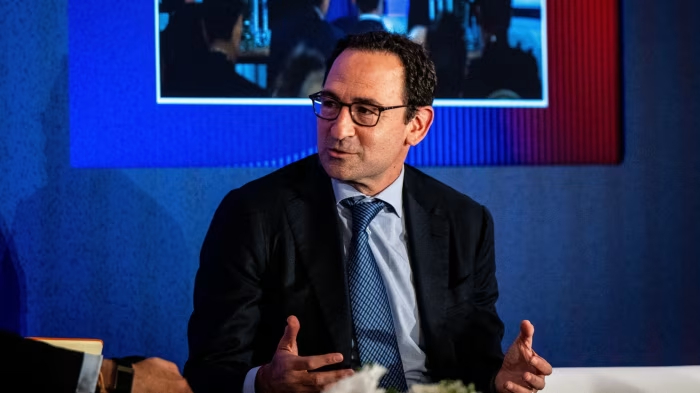Stay informed with free updates
Simply sign up to the Artificial intelligence myFT Digest — delivered directly to your inbox.
Wall Street investors are underestimating artificial intelligence’s potential to make entire industries obsolete, Blackstone’s president has said, adding that the impact of the technology was now “top of our list” when evaluating deals.
Jonathan Gray said that understanding AI risks has become a priority for the private capital group when assessing investments, with the technology already upending business models and causing job losses.
“We’ve told our credit and equity teams: address AI on the first pages of your investment memos,” said Gray at the Financial Times Private Capital Summit in London this week.
High valuations of lossmaking AI companies, and the circular financial relationships between many key players, have fuelled concerns about a bubble in the sector.
Gray said investor exuberance meant it was inevitable that there would be some misallocation of capital to AI companies — “think of Pets.com in 2000”. But he added that the scale of the technology’s impact meant investors may still underestimate its potential to crush entire industries.
FT interview with Blackstone’s Jonathan Gray
Conducted by Arash Massoudi at Private Capital Summit in London.
“People say, ‘This smells like a bubble,’” but they’re not asking: ‘What about legacy businesses that could be massively disrupted?’” said Gray.
“If you think about rules-based businesses — legal, accounting, transaction and claims processing — this is going to be profound,” he added.
Gray compared the looming disruption to New York City taxi licences, which grew almost 500-fold in value over many decades, before swiftly losing 80 per cent of their value when ride-hailing apps Uber and Lyft disrupted the market.
Gray said Blackstone had elevated AI risks to the “top of our list” when assessing the potential downside of investments.
“We’re spending enormous time on both new deals and, importantly, our existing portfolio: what does AI mean for enterprise software, for service businesses handling data and for rules-based work?” he added.
The rise of AI algorithms created by OpenAI, Microsoft and Google is already disrupting white-collar sectors such as accounting, consulting and law, and threatening business models of companies such as advertisers, publishers and software groups.
Machine -learning technology is also threatening manual jobs in areas such as manufacturing.
Blackstone, an early and prolific investor in the data centres used by OpenAI and others to power large language models, has been assessing AI risks for years. It has recently decided not to buy some software and call-centre companies seen as vulnerable to AI-related risks, according to people briefed on the matter.
Blackstone has also invested heavily in utility companies that power data centres, even repositioning some of its industrial portfolio companies such as Copeland and Legence to sell products to providers of AI infrastructure.
Despite its evaluation of AI-related risks, some of Blackstone’s investments are exposed to the impact of technological change. Its private credit business has lent billions of dollars to enterprise software companies, including Medallia, that risk losing customers to AI-driven competitors.
Gray said that while AI would create some negative economic disruptions, the technology could also yield underestimated productivity benefits for large corporations and the global economy, creating trillions of dollars in new corporate wealth. So he has challenged dealmakers to also not miss AI-related opportunities.
“We’re forcing the conversation. We don’t claim to know exactly how it all plays out. But if every deal team has to analyse AI impact then it’s the number-one topic in the room,” he said.
“Acting like it’s business as usual would be a mistake,” he added.
